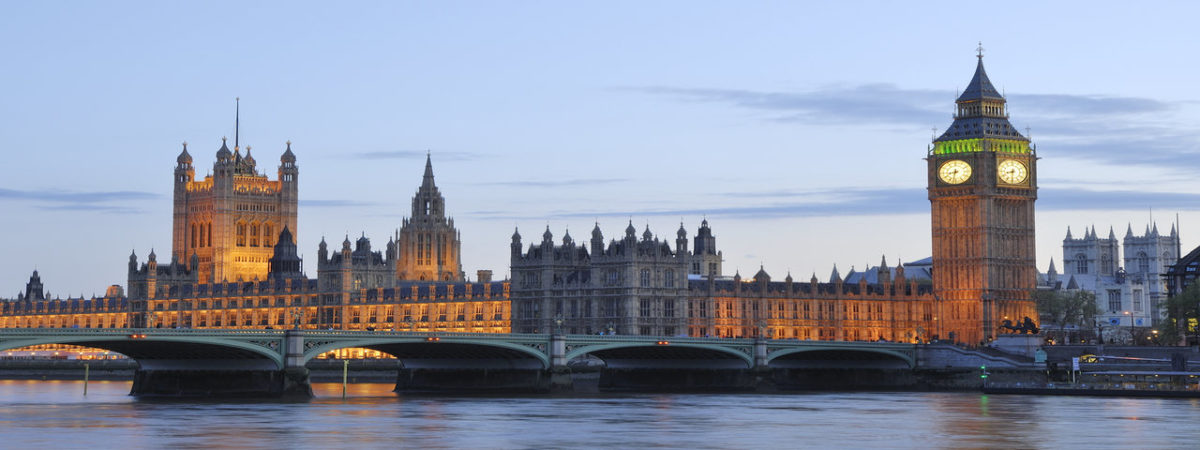The case against ‘taking back control’ – why the UK should retain free movement of people
SUGGESTED



‘Take Back Control’ was a very effective campaign slogan, but when used in the context of migration, it was always inappropriate. Take back control? From whom? Nobody controls the movement of people within the European Economic Area and Switzerland. That’s the whole point of free movement. That’s why it’s called free movement, not ‘EU-controlled movement’. Introducing Inner-European migration controls would not mean ‘taking back control’ from anyone. It would mean creating a whole new layer of government control, which would, beyond doubt, become a horrible bureaucratic mess, and a wholly unnecessary one at that.
EU representatives have repeatedly made clear that if the UK wants to retain access to the single market, it must also accept FoM. Fair enough. In the weeks just after the referendum, it was not even clear whether continued single market access would be possible. Several commentators predicted that the EU would seek vengeance by locking the UK out of the single market, just to make a political point. A ‘velvet divorce’ now looks a lot more realistic, and that is surely a welcome development.
But that’s still not good enough for some ‘hard Brexiteers’, who insist that anything short of copying Donald Trump’s approach to border control would be a betrayal of ‘the people’.
For the record, I am not an open-borders libertarian. I accept that most people value cultural cohesion, which is a perfectly legitimate preference. I also think that it should not be considered a ‘hate crime’ to suggest that some cultures are more easily compatible with one another than others. So no, this is not one of those virtue-signalling diversity-is-wonderful-and-you’re-all-racists articles. All I’m saying is that if your aim is greater cultural cohesion, clamping down on migration from culturally very similar countries does not strike me as the smartest way to go about it.
As for the economics, I have always found arguments about whether ‘immigration’ is ‘good for the economy’ or ‘…the public finances’ a bit tedious. People come here from very different places and for very different reasons, so when we talk about ‘immigration’, the level of aggregation is simply too high.
In this respect, the paper ‘The fiscal effects of immigration to the UK’, published in the Economic Journal, represents a step in the right direction, because it distinguishes between EEA and non-EEA migrants. It is also very comprehensive in its definition of costs, assigning a share of every category of public spending that is somewhat responsive to population changes to immigrants. Also, when allocating the cost of welfare spending, the paper does not just look at cash benefits like Housing Benefit and tax credits, but also at benefits in kind, like social housing.
Unfortunately, allocating tax revenue and public spending to different population subgroups is not a straightforward exercise, so instead of presenting a single result, the paper presents a range of scenarios, each based on different assumptions. But for EEA migrants, the ratio of public revenue to public expenditure is greater than for the native-born population, and this is true in all scenarios, under any set of assumptions.[1] One scenario makes the assumption that migrants send back one fifth of their income to their country of origin, in the form of remittances. This scenario is the least favourable one, because it reduces the share of revenue from indirect taxes (especially VAT) that is attributed to migrants, and thus the estimate of migrants’ net contribution. But even under this rather extreme assumption (we know that people from poor countries send back remittances, but I doubt that this is common among Norwegian engineers and Dutch accountants), the basic finding still stands. EEA migrants pay their way, and then some.
The paper does not provide a detailed socioeconomic profile of EEA migrants, but it shows that the employment rate among them is five percentage points higher than among the native-born population. Fewer than one in four British-born people of working age have a university degree, more than one in three EEA migrants have. While about 19% of British-born people live in social housing, 16% of EEA migrants do, despite the fact that EEA migrants are overrepresented in the parts of the country with the largest social housing stocks (especially London). I don’t know how you define ‘successful immigration’, but I’d say that this is it, under pretty much any definition. Do you seriously believe that a clumsy points-based based system, which is central planning of the workforce composition by any other name, could be an improvement over that? Or do you really think the competencies of the border force, which is currently struggling with its basic tasks, should be extended to chasing up French tourists who have overstayed their Visa?
Oh, and spare me the cries of “But it’s uncontrolled! We must have control!” Yes, it is uncontrolled. So what? Almost three million people move between local authorities in England and Wales every year, and those movements are also – shock, horror – ‘uncontrolled’. I’m not being facetious here: the local level is actually the more relevant level, because all the services that are often claimed to be under pressure from ‘uncontrolled’ immigration – schools, hospitals, GP surgeries, infrastructure, housing etc – are local in nature. If we took the control freak tendencies of the hard Brexiteers to their logical conclusion, we would end up with a system like in Cuba, where you need a special permit if you want to move from one town to another.
None of this means that all concerns over FoM should be dismissed, or that the current status quo should be accepted. We need a much more decentralised tax system, so that the costs and benefits of immigration (and many other activities) are more closely aligned. People experience pressures in specific places, so it won’t do to tell them that in the national accounts, everything looks fine. The benefits of FoM that demonstrably exist must be felt, first and foremost, in those places.
There is also a good case to be made for a more contributory welfare system, in which people have to pay in before they can take out. This would not overtly discriminate against EEA migrants, but it would effectively introduce qualifying periods, which would automatically exclude recent arrivals.
We should also move away from national pay scales and national hiring practices in public services, so that education and health providers can respond more flexibly to local changes in demand patterns.
Those are the no-regrets policies which would make sense even under a system of closed borders, and which would, among other things, also make us better at dealing with migration flows (be they domestic or international). But there should be no compromise on the principle of FoM. What needs not be controlled should not be controlled. And if that means that some people will ‘feel alienated’ – well, let them feel alienated.
—
[1] In years with high budget surpluses (deficits), it is technically possible for all subgroups to be net contributors (net recipients). Comparing the net contribution of migrants to that of the native population is therefore more informative.
3 thoughts on “The case against ‘taking back control’ – why the UK should retain free movement of people”
Comments are closed.





In Norway, where I live, you don’t need a permit to move towns but you have to notify the authorities within 8 days.
This article reminded me of the Jimmy Carr joke which was something like ‘If someone who speaks poor English, has low skills, and can’t live rent-free with her parents can come to the UK and take your job, let’s face it, you’re probably a bit shit’.
Dr Kristian complements this view with reason, data and politeness.
Aliens!